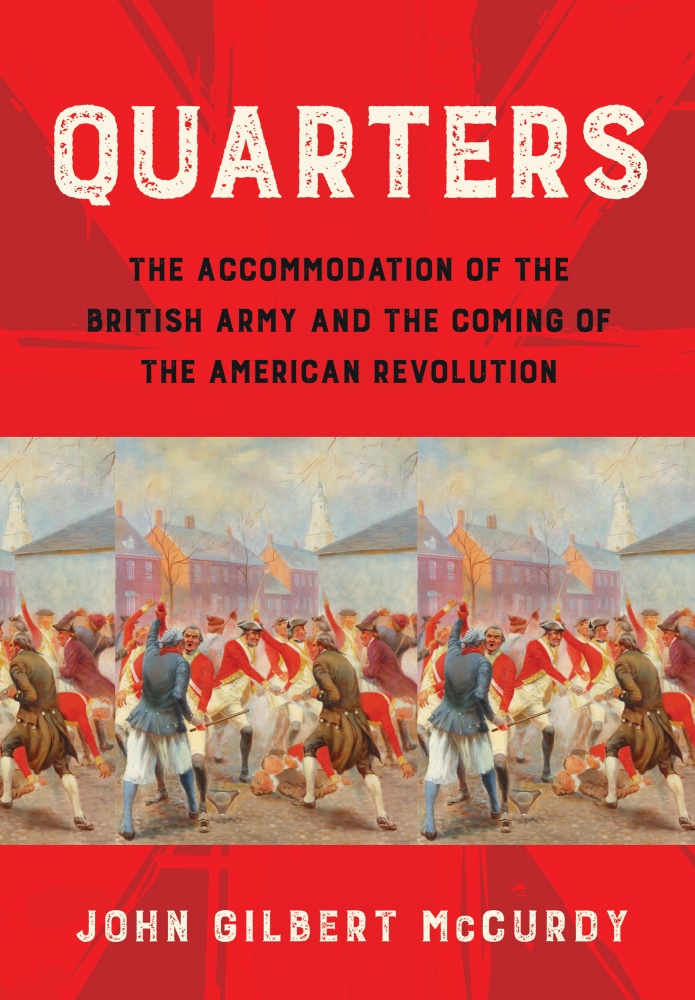Professor John McCurdy Publishes Quarters


Professor of History John McCurdy has published his second book, Quarters: The Accommodation of the British Army and the Coming of the American Revolution (Cornell University Press, 2019). The book investigates quartering (housing, supplying, and transporting) British soldiers in eighteenth-century America, and asks why quartering helped lead to American independence. It answers this question by drawing on recent studies of place, asserting that the late colonial debates over quartering shaped perceptions of house, city, and nation.
Quarters reconsiders military geography in early America. In the Seven Years’ War, Britain expected the colonists to quarter British soldiers in their houses. However, notions of the home were changing and Americans saw quartering as a violation of domestic privacy. To keep soldiers out of their houses, Americans built massive barracks in their cities. This separation of martial and civilian places was codified by the Quartering Act of 1765. Misunderstood by historians, the law was highly successful protecting privacy and collecting taxes from nine colonies.
Quarters is a transnational history and includes Canada and the Caribbean. The British army dominated these places without the Quartering Act, thus soldiers billeted in houses. Relations with Native Americans were also determined by the cost of quartering troops.
The accommodation of British soldiers collapsed when Britain tried to use troops to punish Boston. Following the Boston Massacre, Americans demanded British military power be circumscribed as they imagined their cities without soldiers. When the Revolutionary War began, quartering had become a cause of independence. The debate over quartering lives on in the Third Amendment as well as in perceptions of the home as a place of domestic privacy, the city as a place without troops, and a nation with a civilian-led military.
“Quarters is a magnificent book of relevance to colonial American and British imperial history, there is much to praise,” writes Colin Nicolson of the University of Stirling. Carleton College Professor of History Serena Zabin adds: “I have confidence that Quarters will become the authoritative text on military quartering in British colonial America due to its wide range throughout British America and its close attention to politics.” “Quarters is seriously argued and casts a whole new light on one of the more important Parliamentary enactments of the 1760s. John Gilbert McCurdy’s analysis is a must-read revision of the history of the imperial crisis,” notes Peter Charles Hoffer of the University of Georgia.


Dr. McCurdy has been a member of the Department of History and Philosophy at Eastern Michigan University since 2005. He is the author of Citizen Bachelors: Manhood and the Creation of the United States (Cornell University Press, 2009). He regularly teaches courses in the history of early America, diversity in US history, the Atlantic World, and sexuality. He will deliver a public lecture based on his book on January 16, 2020.

